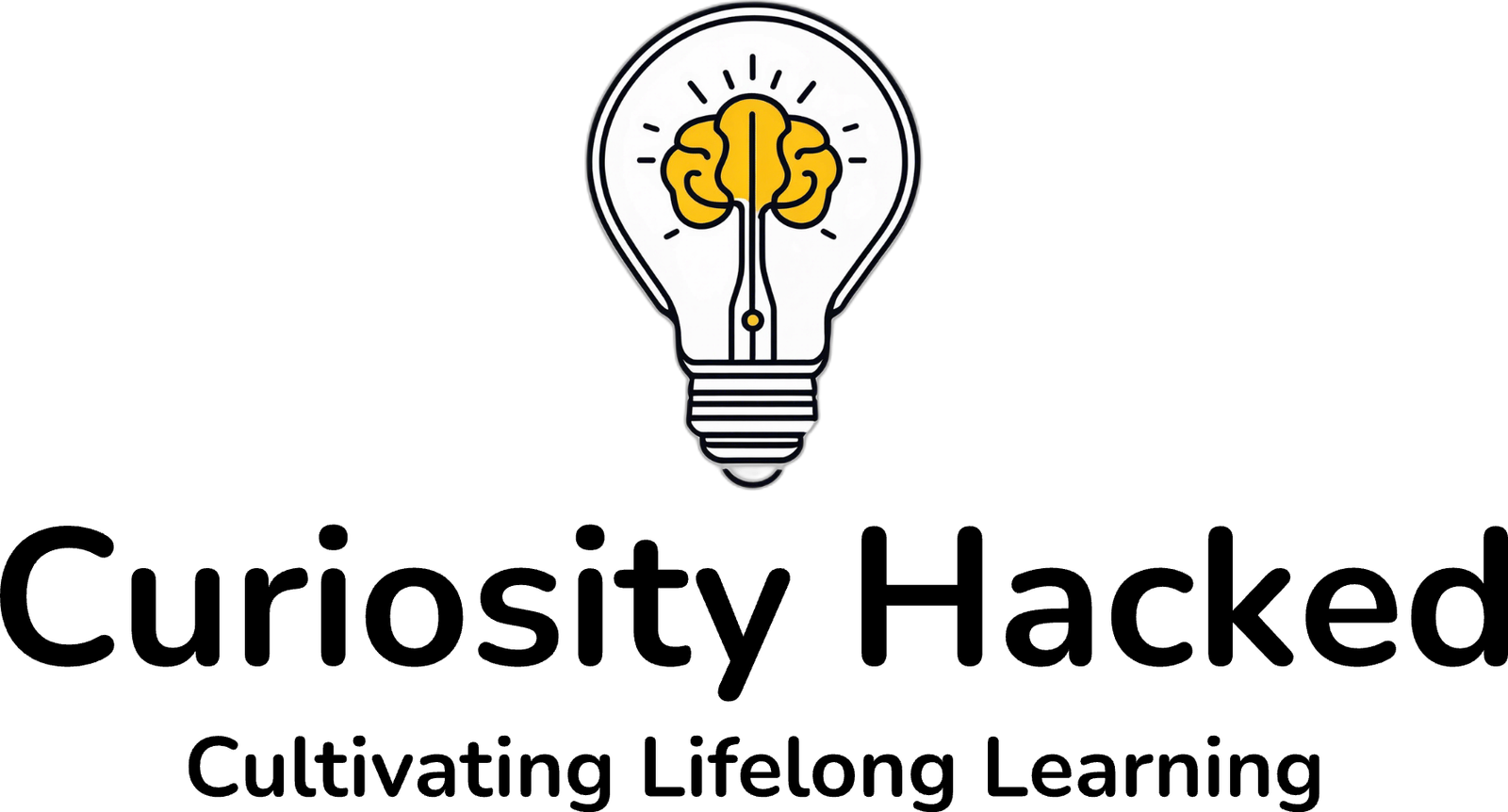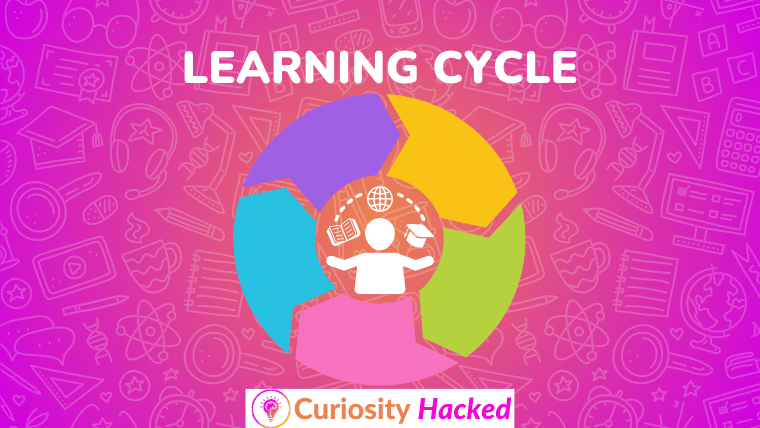The world around us is constantly changing, and the need to learn and adapt has never been more crucial. Whether you want to advance your career or simply enjoy the thrill of acquiring new knowledge, efficient learning is the key to unlocking your full potential. But what exactly is the concept of efficient learning, and how can it help you achieve your goals?
In this blog post, we’ll explore the empowering cycle of efficient learning and how it optimizes the learning experience for lifelong learning. We’ll dive into various strategies, maximizing unlimited access to knowledge, overcoming challenges, and real-life examples of success stories. So buckle up and prepare to embark on an exciting journey toward lifelong learners’ personal fulfillment and success!
Short Summary
- Efficient learning is a powerful blend of self-directed learning and formal education that leads to lifelong success.
- Unlock the immense rewards of continuous personal growth by utilizing research-backed techniques, developing critical thinking skills, balancing breadth & depth, and staying up to date with industry trends.
- Overcome challenges in efficient learning through strategic time management & motivation strategies for optimal outcomes!
The Essence of Efficient Learning

Efficient learning is a powerful combination of self-directed learning and formal education, allowing you to maximize your learning experience for lifelong learning. Imagine being able to learn something once and then reap the rewards of that knowledge over and over again throughout your life. Sounds incredible, right? Well, that’s the power of efficient learning.
Efficient learning strategies help you reach your goals quickly and effectively, transforming your life and opening up a world of opportunities. By balancing your learning with a focus on personal fulfillment, you can continually develop new skills, knowledge, and abilities that will ultimately lead to success in various aspects of your life.
Lifelong learning and self-directed learning
Lifelong learning is an exciting journey of personal growth and development in which you can explore your interests and work towards your goals through self-directed learning processes. You can unlock the immense long-term rewards of continuous personal development by engaging in everyday lifelong learning activities such as communication skills, organization, and time management.
Recognizing personal interests and goals in lifelong learning can make life more exciting, reduce monotony, and offer potential opportunities down the line. Lifelong learning aims to reach your full potential and experience a sense of personal fulfillment.
By making room in your life for the idea of a new learning initiative and uncovering available resources, you can devise an effective approach to learning something new.
The Role of formal education
Formal education plays a crucial role in lifelong learning, equipping us with the necessary knowledge and skills to keep growing and developing. It is vital for employee skill development, as it enables them to stay ahead of the curve and remain successful in the workplace.
Moreover, formal education provides the essential knowledge and skills to stay ahead of the competition and remain relevant in the workplace. It also equips you in the future with the ability to be adaptable and flexible, which is essential for any organization to stay competitive and relevant.
For example, Wiley CMAexcel is a great resource for anyone planning on becoming a CMA.
Strategies for Efficient Learning

To optimize your learning experience, it’s essential to employ effective strategies. These strategies include research-backed techniques, developing critical thinking skills, and implementing a community-based approach. By varying your learning routine, spacing out study time, using self-testing, and taking notes in class, you can significantly enhance your ability to learn efficiently.
Moreover, a community-based approach allows you to reap the rewards of the collective knowledge and experience of the group, ultimately improving your own learning experience. Let’s explore these strategies in more detail to understand how they can help you become a more efficient learner.
Research-backed techniques
There are numerous research-backed techniques that can help you learn efficiently, such as spaced repetition, active recall, desirable difficulties, elaboration, interleaving, concrete examples, dual coding, retrieval practice, mind mapping, exercising before studying, Leitner system, studying before sleeping, Feynman technique, SQ3R method, and self-quizzing.
For example, spaced repetition is an incredibly effective technique that involves spacing out the intervals between studying a particular material, allowing for better retention of the material and helping you save time on studying. Anki is a very helpful tool for spaced repetition.
On the other hand, active recall involves actively trying to recall information from memory, strengthening the connections between neurons in the brain and leading to better retention of the material.
Developing critical thinking skills
Developing your critical thinking skills can help you make informed decisions and become more successful. These skills include observation, analysis, interpretation, reflection, evaluation, inference, explanation, self-regulation, open-mindedness, and problem-solving. Cultivating these abilities can help you become an effective problem-solver and decision-maker, leading to numerous benefits in various aspects of your life.
To develop critical thinking skills, engage in activities such as reading, writing, problem-solving, and participating in debates and discussions. Additionally, asking questions, considering different perspectives, and reflecting on one’s own thoughts and opinions can also be beneficial tools for developing critical thinking skills.
Successful critical thinking skills include identifying and analyzing problems, drawing logical conclusions, and developing creative solutions.
Implementing a community-based approach
A community-based approach is an empowering strategy that involves the community in the decision-making and implementation of a project or program, focusing on the needs and perspectives of the community. By implementing a community-based approach, you can experience increased community engagement, improved access to resources, and increased accountability, ultimately leading to more effective decision-making and implementation of projects, services, and programs.
There are numerous examples of successful community-based approaches, such as the city of Seattle’s implementation of a community-based approach to address homelessness, resulting in a notable decrease in the number of people living on the streets. Additionally, the city of San Francisco has implemented a community-based approach to address the housing crisis, leading to increased access to affordable housing.
Maximizing Unlimited Access to Knowledge

In today’s digital age, unlimited access to knowledge can offer you the opportunity to explore a world of information without any boundaries, giving you the power to access information anytime and anywhere. However, it’s essential to balance breadth and depth to ensure you have a comprehensive overview of the subject matter of interest while delving deeper into specific topics.
To stay ahead of the game and maximize your access to knowledge, it’s crucial to stay up-to-date with industry trends. This can be done by reading industry publications, attending conferences, and networking with professionals in the field to gain valuable insights.
Balancing breadth and depth
Breadth and depth are two important concepts when it comes to learning. Breadth refers to the overall knowledge of a topic, while depth is the level of exploration and understanding of each topic. Understanding both will help you gain a better understanding of the subject.
Some strategies for achieving a balance between breadth and depth include focusing on core concepts, breaking down topics into smaller chunks, and employing spaced repetition. By managing the exciting challenge of balancing breadth and depth, you can effectively optimize your learning experience for lifelong learning.
Staying up-to-date with industry trends
Staying informed about industry trends is of utmost importance in today’s rapidly changing world. By staying up-to-date, you can ensure that your knowledge remains relevant and valuable, giving you a competitive edge in your field.
Some exciting industry trends include the rise of micro-credentials, the importance of continued learning and retraining, and the use of technology for online solutions and virtual conferences. By staying informed about these trends and actively engaging with them, you can maximize your access to knowledge and stay ahead in your field.
Overcoming Common Challenges in Efficient Learning

Efficient learning may present challenges such as time management and maintaining motivation. However, you can optimize your learning experience and achieve greater success by employing effective strategies to overcome these challenges.
Effective strategies for overcoming these challenges include setting achievable goals, breaking tasks into smaller pieces, planning out your schedule, and taking regular breaks to stay focused. Additionally, staying motivated by rewarding yourself for progress, staying organized, and seeking help from others can ensure long-term success in your efficient learning journey.
Time management
Time management is the process of organizing and planning how to divide your time between different activities, ultimately helping you reach your goals and get the most out of your day. By improving your time management skills, you can prioritize tasks, reduce stress, and unlock your potential to achieve bigger and better results.
To improve your time management skills, try setting achievable goals, breaking tasks into smaller pieces, planning out your schedule, and taking regular breaks to stay focused. By adopting these strategies, you can effectively manage your time and achieve the best results in your efficient learning journey.
Maintaining motivation
Motivation is the powerful force that initiates, guides and sustains goal-oriented behaviors. Staying motivated throughout your learning journey is crucial, as it helps you stay focused, overcome challenges, and ultimately achieve your goals.
To maintain motivation, try setting achievable goals, breaking down tasks into smaller steps, rewarding yourself for progress, and staying organized. Focusing on the end goal, setting realistic expectations, and taking breaks when needed can also help you stay motivated in the long run. Surrounding yourself with positive people and staying positive can also provide the necessary motivation to keep pushing forward.
Real-Life Examples of Efficient Learning Success Stories
Real-life examples of efficient learning success stories demonstrate the power of employing effective learning strategies. Students who have used strategies such as practice testing, spaced practice, retrieval practice, elaboration, interleaving, and using concrete examples have experienced remarkable improvements in their learning and retention of information.
One notable example is the experience of a Wiley CMAexcel customer, who found the content in Wiley’s CMAexcel Review Course to be comprehensive and precise, giving them the confidence needed to ace their exams. By utilizing efficient learning strategies, these individuals have achieved success and reached new heights in their personal, family, and professional lives.
Summary
In conclusion, efficient learning is an empowering cycle of self-directed learning and formal education that optimizes the learning experience for lifelong learning. You can unlock your full potential and achieve personal fulfillment and success by employing effective strategies such as research and science-backed techniques, developing critical thinking skills, implementing a community-based approach, and maximizing unlimited access to knowledge.
As you embark on your efficient learning journey, remember to stay motivated, manage your time effectively, and embrace the exciting opportunities that come with lifelong learning. After all, the world is your classroom, and there’s always something new to learn and explore. So go ahead, grab the day, and make the most of your learning experience!
7 Components of Effective Learning Experiences Video
Frequently Asked Questions
How do you optimize learning?
Optimizing learning means creating effective and meaningful learning experiences for learners. Focus on delivering consistent learning, providing personalized experiences, reducing the loss of knowledge, and recognizing the impact of training on learners and the business.
Incorporate shorter study sessions, change the environment, and study information over time into the learning process. Finally, don’t cram content; focus on the network, make reflection a part of learning, and educate the whole person.
How do you optimize learning in the classroom?
To optimize learning in the classroom, implement strategies such as using technology effectively, setting purposeful and consistent routines, assigning quality problems instead of quantity, leveraging simulation to stimulate, providing students with a clear map, and utilizing reflective techniques.
These strategies will create an optimal learning environment, facilitate academic risk-taking, and support collaborative relationships that will help maximize learning potential.
What is optimization in education?
Optimization in education means making the most of available resources and applying them in order to provide the best possible learning outcomes. With optimization, teachers and students can work together to identify and realize their potential, creating an environment where everyone succeeds.








